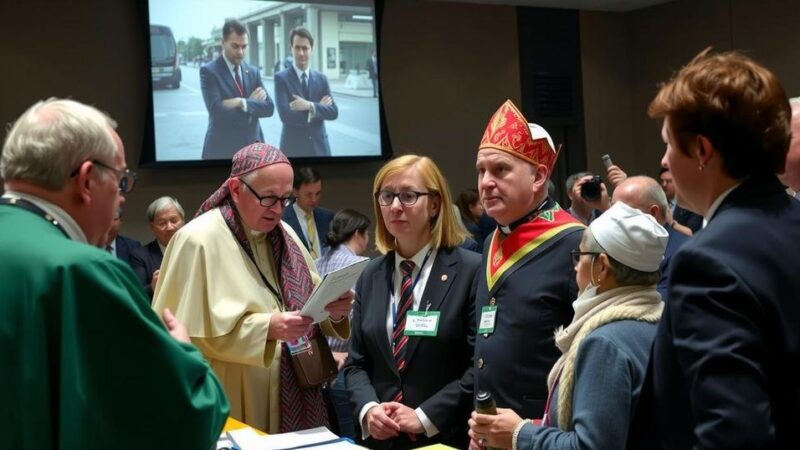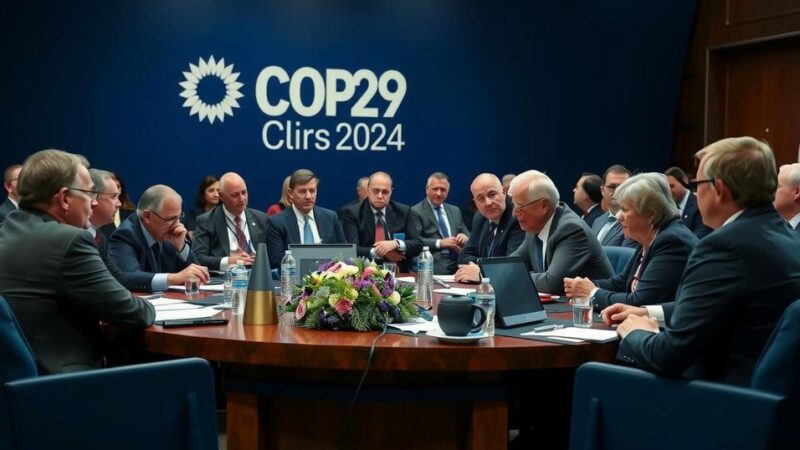This article explores the impact of ‘double skeptics’—individuals who harbor skepticism towards both climate change and vaccination—on government policy. New research from the University of Cambridge emphasizes the necessity for tailored communication strategies to address varying levels of skepticism, revealing that while most people support scientific consensus, a small group maintains a broader distrust of institutions. This distinction informs effective governmental approaches to engage the public and counter misinformation.
Governments around the world face significant challenges when attempting to address the skepticism of individuals concerning critical issues such as climate change and vaccination. Recent research conducted by the University of Cambridge highlights the complexity of public skepticism, particularly revealing the presence of a subset termed “double skeptics”—individuals who express skepticism towards both climate science and vaccination initiatives. This group is characterized by a broader, generalized distrust of societal institutions, including scientific bodies and the media. The study, published in the journal PLOS ONE, emphasizes that not all skeptics exhibit uniformly negative attitudes towards scientific consensus. Instead, the research points to a need for tailored communication strategies aimed at distinct skeptical groups. Dr. Zeynep Clulow, a co-author of the study, noted, “The research shows that there are other approaches than addressing these issues in a one-size-fits-all manner.” The findings were drawn from a survey conducted in early 2021, comprising 2,000 participants from eight countries—including Australia, Brazil, China, India, Japan, South Africa, the UK, and the US—yielding insights into the motivations behind public skepticism. The results indicated that while a significant majority recognize the threats posed by climate change and support vaccination efforts, a small percentage maintained skepticism about these issues. In particular, the study identified that individuals with a deep-seated distrust in institutions were more likely to be “double skeptics,” in contrast to those who exhibited single-issue skepticism. Further analysis revealed that individuals who completely distrust scientists are approximately four times more likely to oppose vaccinations and five times more likely to reject the existence of climate change. This has critical implications for policymakers, suggesting that conventional strategies aimed at building trust in science may not effectively engage with double skeptics, who require fundamentally different approaches due to their unique worldview. As skepticism diminishes with higher educational levels and scientific understanding, the study highlights the role of political orientation and economic priorities as significant factors influencing skepticism. This relationship is crucial in informing future governmental strategies to effectively counter misinformation and engage with skeptical populations. Notably, the study cautions against categorizing all skeptics as irreconcilable conspirators. Many skeptics are primarily concerned with specific issues and can be engaged with targeted messaging tailored to their beliefs. Ultimately, the researchers suggest that more nuanced engagement strategies will be essential in improving public confidence in scientific consensus regarding climate change and health initiatives. By recognizing the diversity within skeptical attitudes, governments can allocate resources more efficiently and focus efforts on the segments of the population that are open to persuasion.
The phenomenon of public skepticism towards scientific consensus on pressing issues, such as climate change and vaccination, poses significant challenges for policymakers worldwide. Previous research has indicated a correlation between skepticism and distrust of scientific institutions, often rooted in psychological biases, institutional distrust, and individual worldviews. The emergence of “double skeptics,” those who harbor skepticism towards multiple critical issues, necessitates a reevaluation of engagement strategies aimed at fostering public trust in scientific expertise and guidance. This evolving understanding underscores the necessity of tailored approaches in public communication, which recognize the multifaceted nature of skepticism and its underlying motivations.
The research highlights the complex interplay between public skepticism and trust in scientific institutions, specifically focusing on the phenomenon of double skepticism. By understanding the diverse motivations that drive skepticism toward climate change and vaccination, policymakers can develop targeted communication strategies. The distinction between single-issue skeptics and double skeptics is crucial, suggesting that engagement efforts should be customized rather than applying a broad-brush approach. Acknowledging the intricacies of public skepticism will enable more effective governmental responses to promote science-based policies.
Original Source: phys.org






